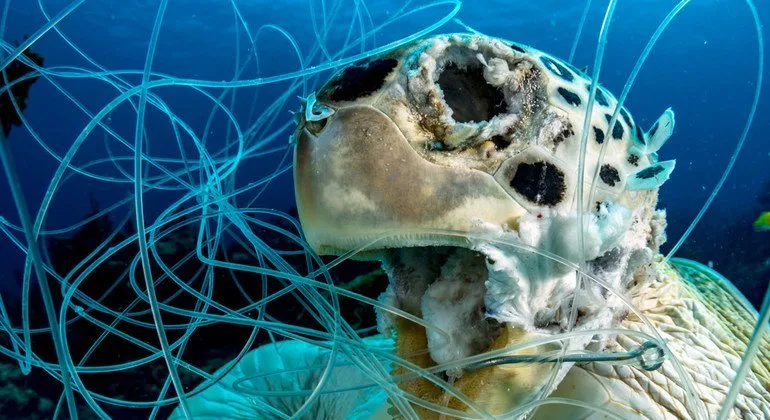Ghost fishing, an eerie and ominous phenomenon, bears a striking resemblance to the spine-chilling tales of ghosts that haunt and torment the living. Much like these supernatural stories that exist beyond our physical world, abandoned, lost, and discarded fishing gear (ALDFG) persists in the ocean depths, ensnaring marine creatures and ravaging vital habitats long after its useful life has ended. Shockingly, a staggering 640,000 tons of ALDFG are released into our seas each year, posing a grave global threat. The Mediterranean region is no exception, with Tunisia being among the nations grappling with the harmful consequences of this predicament.
March 2023, Monastir
Monastir’s Coasts: A Minefield of plastic traps
In the sleepy fishing port of Ksibet El Mediouni, nestled near the bustling city of Monastir, a grim reality haunts the waters. Located just 23 km from the Kuriat Marine Protected Area, the local fishermen have become all too familiar with the devastating effects of ghost fishing. Every day, they are forced to confront the harsh truth of abandoned fishing gear haunting their coasts, leaving their livelihoods in peril.
The main concern for these hardworking fishermen is the overwhelming presence of thousands of plastic traps invading their waters. This plastic ( read more about plastic pollution) scourge has overrun the area, causing untold damage to the marine ecosystem.
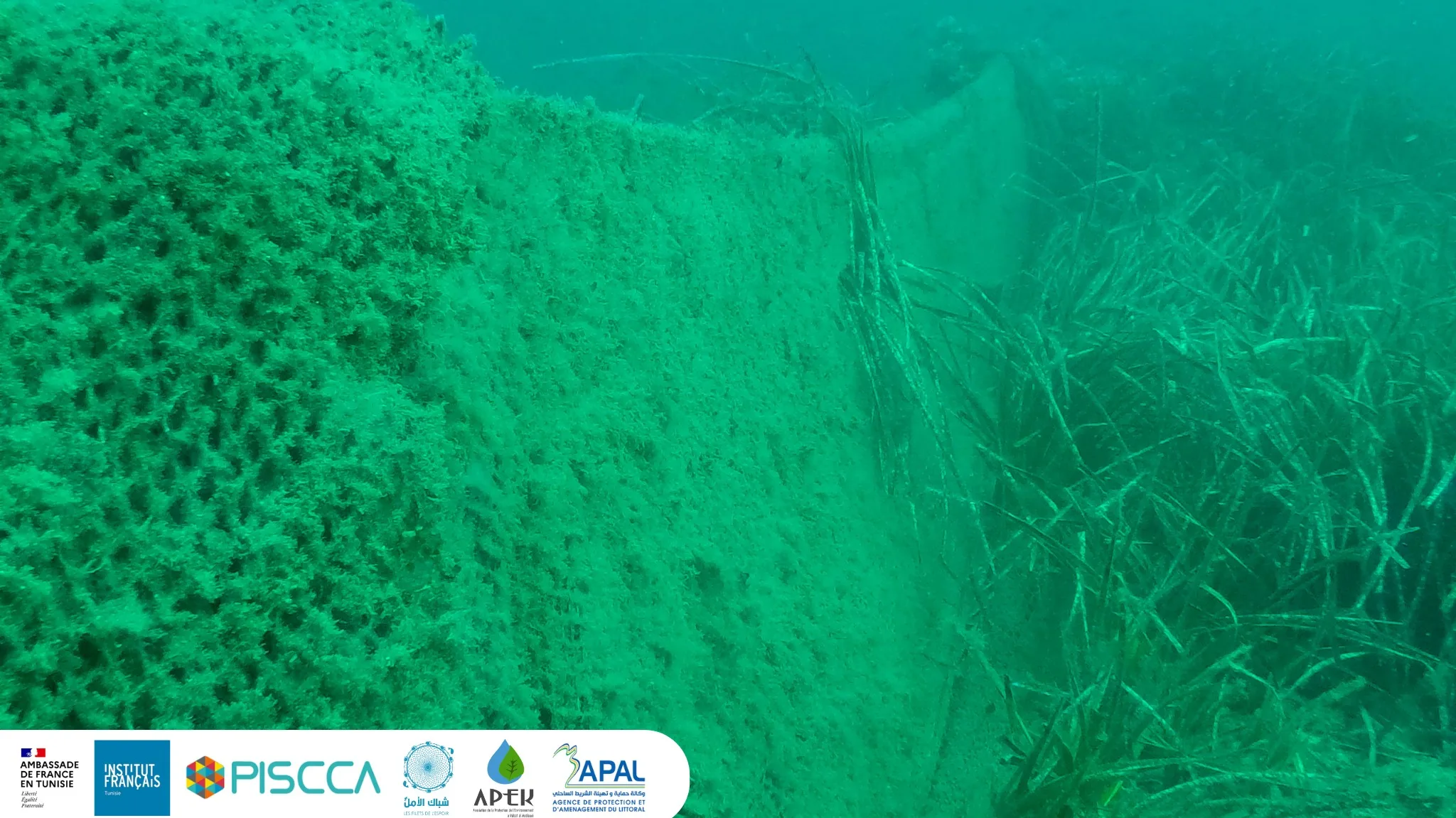
« During our work, we frequently confront ghost gears like nets, traps, and lines, but recently our seas have been plagued by thousands of plastic traps that are invading our waters each day, » laments Amer Slama, a local fisherman from Ksibet El Mediouni. « These gears are discarded by fishermen who seem unaware of the damage they are causing to the sea – our only source of income. »
As the issue of ghost fishing continues to threaten the livelihoods of fishermen and the health of our oceans, urgent action is needed to combat this scourge. The plight of the Ksibet El Mediouni fishermen is a stark reminder of the need for increased awareness and responsible fishing practices to preserve our precious marine resources for generations to come.
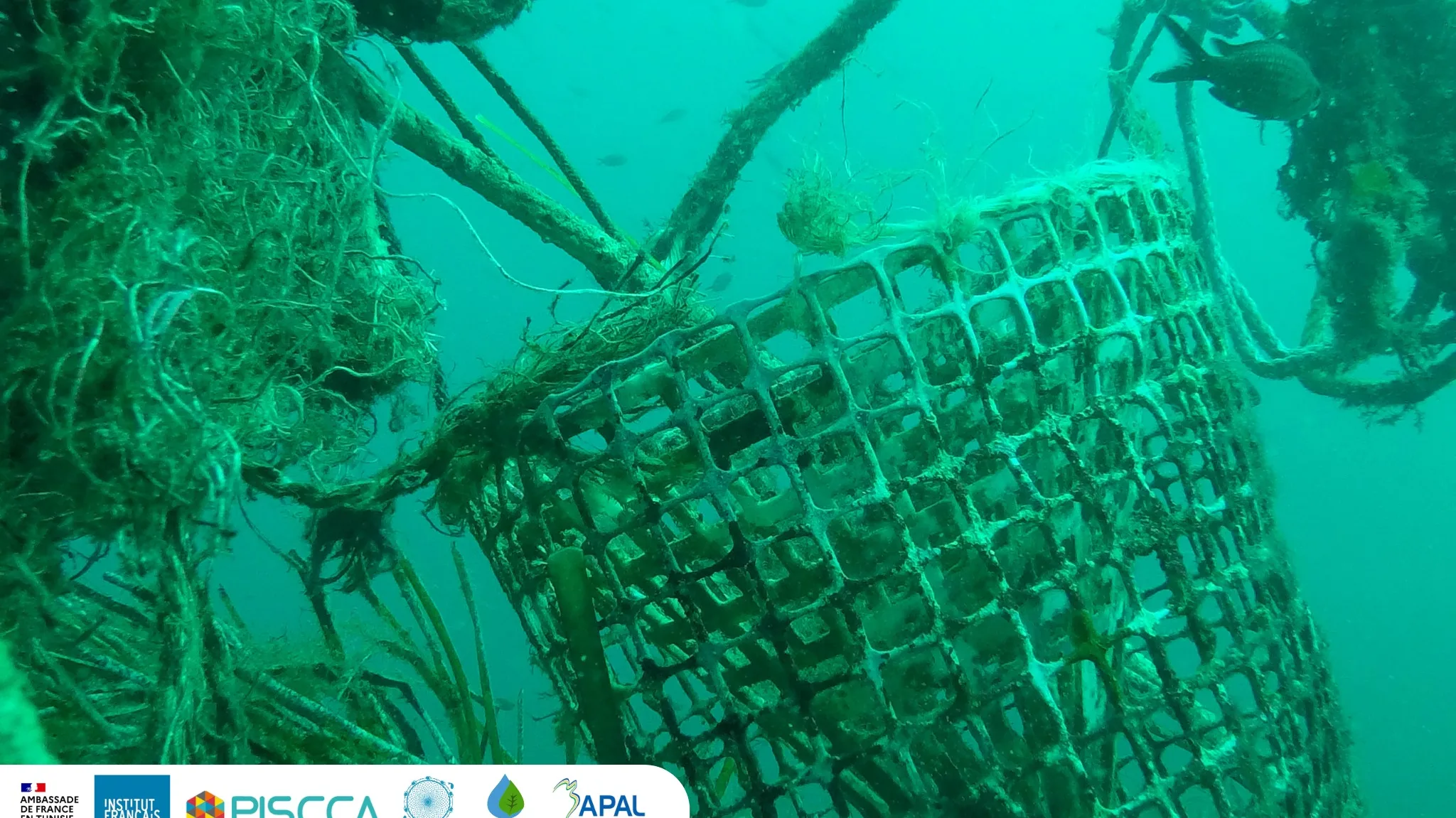
As concerns mount over the staggering number of traps lost at sea in the Bay of Monastir, a new survey released by the NGB Association has shed light on the magnitude of this issue. According to the survey, a staggering 250,000 to 300,000 traps are used by fishermen in the region, with a shocking 20% lost at sea every year. This equates to a staggering total of 50,000 traps lost each year, exacerbating an already dire situation.
Ironically, the fishermen of Ksibet el Midouni have found a new use for these plastic traps, adopting them as a means of catching fish after the Tunisian revolution in 2011. As a result, the women of the village have also taken up the craft of making these traps to supplement their income. However, this unsustainable approach to fishing has come at a steep cost.
« The traditional fishing practices that were once a source of our pride, passed down from our ancestors, are now vanishing, » reveals Mouin, a young fisherman from Ksibet El Mediouni. « They are being replaced by the effortless use of plastic traps, which are lightweight and cheap. Unfortunately, if these traps are lost, fishermen are unwilling to expend the effort to retrieve them because they are simply not worth the effort. »
As the use of plastic traps continues to grow in popularity among the fishing community, it is crucial to find sustainable alternatives that will not harm the environment or compromise the livelihoods of local fishermen. The plight of the Ksibet El Mediouni community serves as a stark reminder of the importance of responsible fishing practices and the need to safeguard our marine resources for future generations.
The Root Causes of Ghost Fishing: How fishing gear End up in our sea?
Ghost fishing, a deadly phenomenon that devastates marine ecosystems and threatens the livelihoods of those who depend on them, has gained widespread recognition as a severe problem. The Food and Agriculture Organization (FAO) has acknowledged its negative impact on biodiversity and habitats, sparking concerns worldwide.
While ghost fishing has been present for a long time, its impact has become increasingly visible since the start of the 21st century. It refers to fishing gear that have been deliberately or accidentally abandoned, lost, or discarded in the sea, capturing and killing marine organisms without any active human monitoring.
IMED JRIBI, a researcher, and professor at the Faculty of Sciences of Sfax, coordinator of Life Med Turtle, and regional vice president of the Marine Turtle Specialist Group, has described ghost fishing as “a serious issue that poses a significant threat to marine life”.
According to a study conducted by the United Nations Environment Programme (UNEP) and the Food and Agriculture Organization (FAO), Abandoned, Lost, or Discarded Fishing Gear (ALDFG) are caused by various factors. Fishermen can intentionally abandon their fishing gears to avoid getting caught by authorities under fishing regulations, making it the primary cause. Fishing gears can also be lost or damaged due to conflicts with other marine debris, entanglement, or weather conditions, which increase the chances of abandonment or discard.
The impact of ghost fishing on marine ecosystems cannot be underestimated. It is high time for governments and international bodies to take appropriate measures to prevent the continued destruction of our marine habitats and protect the livelihoods of those who depend on them.
Ghost Fishing: A threat to the biodiversity and the health of our coasts
The devastating impact of ghost fishing on marine life cannot be overstated, particularly for sea turtles, as confirmed by surveys conducted in Tunisia during the LifeMed Turtles project. Ghost fishing, according to IMED JRIBI, indiscriminately affects all marine species, including plants and protected species, making it a serious environmental issue.
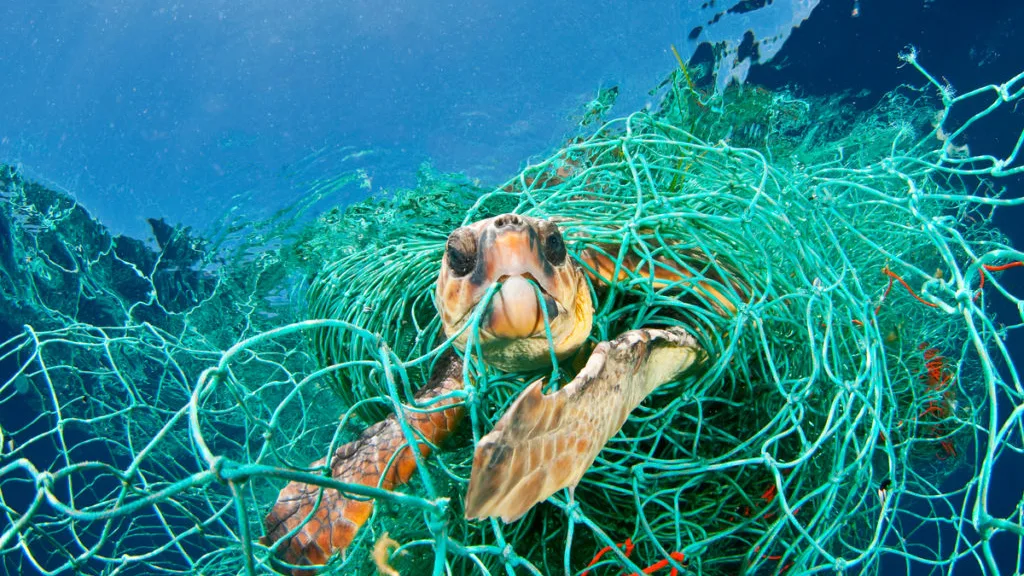
A report titled « Ghosts beneath the waves » by World Animal Protection revealed that 45% of all marine mammals on the Red List of Threatened Species have been affected by lost or abandoned fishing gear. Ghost nets, in particular, are dangerous in the sea, as they can ensnare all types of organisms, including sea turtles, becoming bait for other creatures searching for food. During the LifeMed Turtles project, the team has conducted ten actions to collect ghost nets in various coastal sites in Tunisia, collecting approximately 500 kg of ghost nets in a single action. The haunting and distressing sight of live fish, turtle skeletons, and Posidonia plants entangled in the nets was a clear indication of the danger posed by ghost fishing.
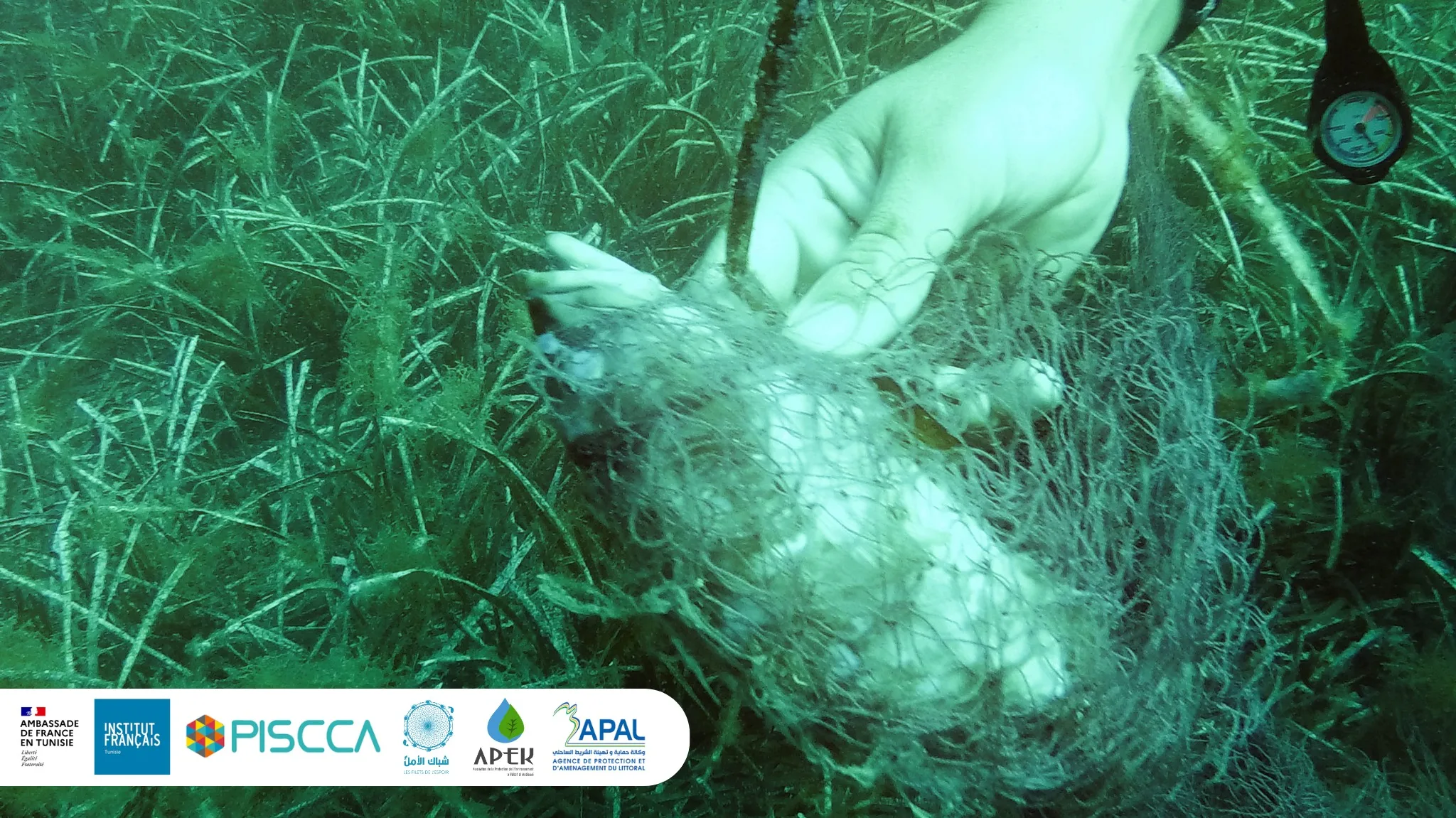
IMED JRIBI has assessed ghost nets as one of the most destructive forms of marine debris, causing significant harm to underwater life. Ghost nets can get entangled in the sea substrate, suffocating aquatic organisms and preventing light from reaching the surface. This process ultimately leads to the death of vegetal organisms that depend on photosynthesis. Moreover, the nets can be carried by sea currents, crushing the sea floor and smashing the marine vegetation cover like Posidonia plants, while transporting non-native species.
Abandoned fishing gear can also trap and kill marine organisms, including non-native species, leading to invasive species that disrupt the local ecosystem. Ghost gear can also release microplastics that harm marine life and contribute to environmental degradation. Affirms Imed Jeribi.
Ghost fishing: An unfair competition between ALDFG and fishermen
Ghost fishing is not just a threat to marine biodiversity, it also poses a significant risk to the livelihoods of fishermen. « Once it’s submerged in the sea, it relentlessly devours aquatic organisms like an insatiable predator, » warns environmental activist and researcher in environmental law, Fatma Ben Amor. And the impact is staggering. Abandoned, lost or discarded fishing gear can cause up to a 15% mortality rate compared to active fishing gear, resulting in an estimated catch of 5-30% of global harvestable fish stocks annually, including endangered, threatened, and protected species.
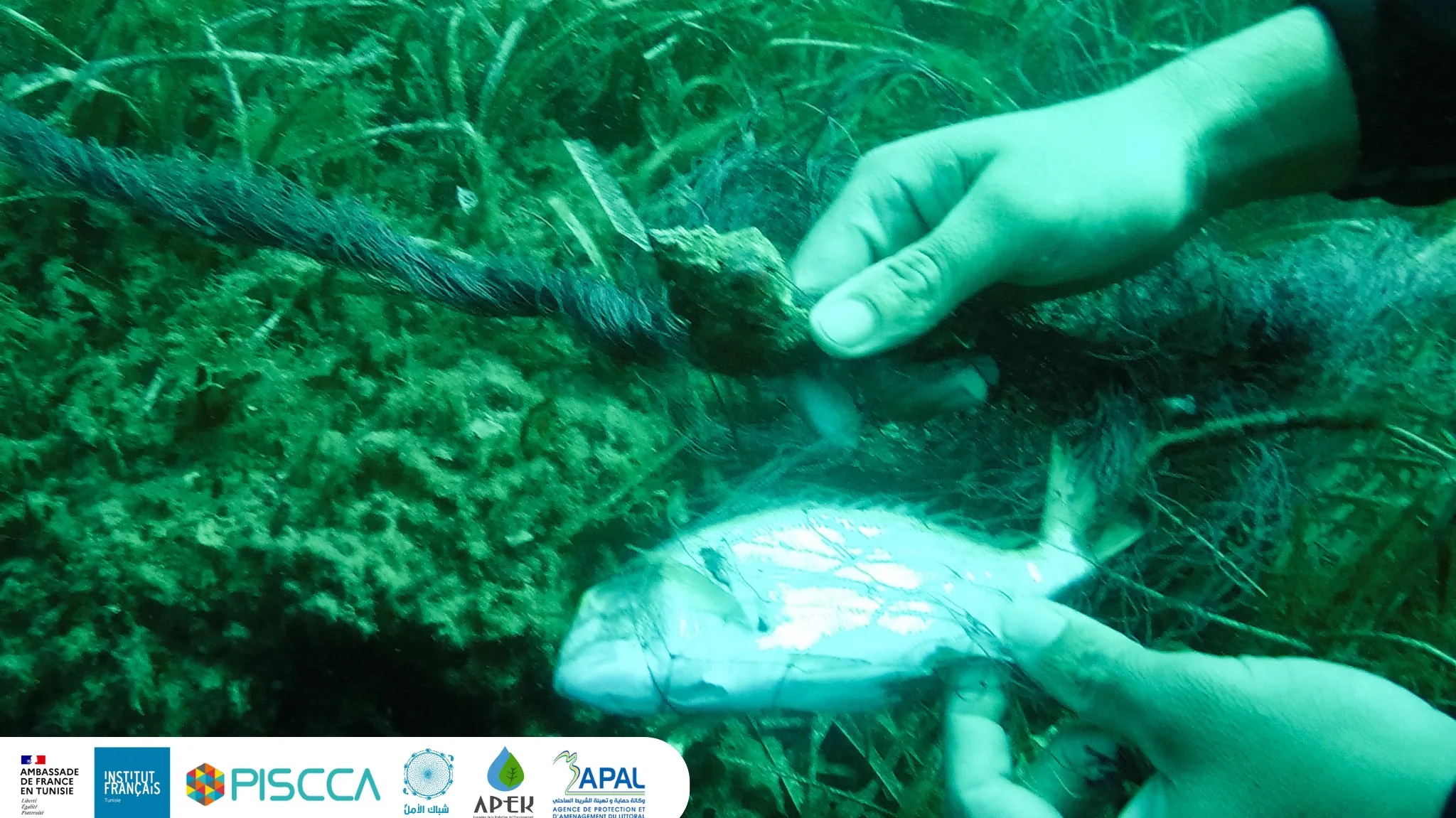
But ghost fishing doesn’t just compete with active fishermen for catching, it can also lead to significant economic and environmental challenges for small-scale fishers. « It’s a complex problem influenced by a variety of factors, including the practices of fishermen, policymakers, and others, » explains F. Ben Amor. « It’s unfair to blame fishermen for ghost fishing, as they are often victims of the phenomenon. »
However, fishermen may also be contributing to the problem through irresponsible behavior or a lack of awareness about the issue. Educating fishermen and raising awareness about sustainable fishing practices can prevent unintentional abandonment of fishing gear while finding solutions that support both sustainable fishing practices and the livelihoods of fishermen. « We need to take action to prevent this devastating impact on our oceans, » urges researcher and project coordinator at the Association for Environmental Protection in Ksibet el Mediouni, Imed Jribi.
Urgent call to take action to save our sea
As part of the « Nets of Hope » project launched by the Association for Environmental Protection in Ksibet el Mediouni (APEK), surveys have been conducted to collect data on the effects of ghost fishing. According to Fatma Ben Amor, a project coordinator and environmental activist, collecting abandoned fishing gear is not an easy task and requires collaboration with local fishermen and divers, which can be both costly and exhausting.
Imed Jeribi recognizes the significant challenges that ghost fishing poses and emphasizes the need for greater resources and efforts at the national and local levels. « We cannot rely only on civil society to solve this problem. While their role in raising awareness is crucial, the solution to ghost fishing requires collaboration among governments, researchers, and fishing communities, » he says.
One crucial step in addressing ghost fishing is developing a deeper understanding of its impact on the marine ecosystem. This includes conducting further research on the effects of ghost fishing and identifying the species most affected by it. By gaining a better understanding of the problem, we can develop more effective solutions to prevent and mitigate its impact.
Imed’s words serve as a reminder that the issue of ghost fishing is complex and requires a comprehensive approach that involves a range of stakeholders. Only through coordinated efforts and sustained investment can we hope to tackle this challenge and preserve our oceans for future generations.
Various solutions have been proposed to reduce the harmful effects of ghost fishing, such as improved marking of fishing gear, incentivizing recycling and refurbishing of end-of-life fishing gear by manufacturers, and using biodegradable gear features. Initiatives have also been launched to recycle ghost gear into innovative products.
The Nets of Hope project by APEK has given the potential to the issue of abandoned, lost, or discarded fishing gear (ALDFG) by valorizing fishing gear into products. This circular approach can be a sustainable solution to the issue of ghost fishing, creating economic opportunities for local communities and reducing the amount of waste in the ocean. As Fatma declares, « Instead of abandoning or losing fishing gears in the ocean, these gears can be recycled and transformed into new products such as clothing, accessories, and even furniture. »
Ghost fishing is a global crisis that demands both national and local efforts to combat. Governments must take the lead by implementing measures such as improved gear marking, supporting the recycling of ALDFG, and promoting the use of biodegradable equipment. At the same time, civil society can play a significant role in raising awareness among communities. Thankfully, programs like LifeMed Turtles, Nets of Hope by APEK, and initiatives carried out by the NGB Association in Tunisia are working hard to address this issue and provide hope for a future where ghost fishing no longer threatens marine life and ecosystems. These efforts involve collaborations with local fishermen and divers, who work tirelessly to collect abandoned gear and transform it into new products.
Despite these efforts, the reality of ghost fishing still looms as a stark reminder of the devastating impact of human activities on the marine ecosystem. It highlights our legacy of neglect for the natural world and underscores the urgent need for action to protect our oceans and their inhabitants.
This article was developed in collaboration with the Earth Journalism Media Mediterranean Initiative project.
Sources
- https://www.greenpeace.de/sites/default/fijles/publications/20190611-greenpeace-report-ghost-fishing-ghost-gear-deutsch.pdf
- https://www.sciencedirect.com/sdfe/reader/pii/S0308597X2200433X/pdf
- https://www.worldanimalprotection.us/sites/default/files/media/us_files/ghosts_beneath_the_waves.pdf
- https://www.fao.org/3/i0620e/i0620e.pdf
- https://www.sciencedirect.com/sdfe/reader/pii/S0308597X2200433X/pdf
- https://mio-ecsde.org/wp-content/uploads/2016/12/ALDFG-in-the-MED.pdf

